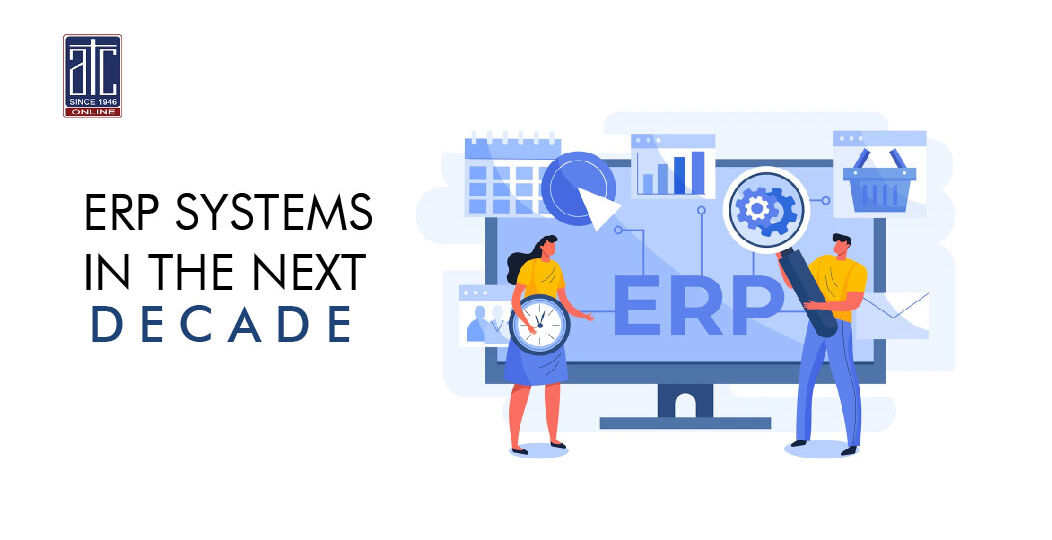
ERP (Enterprise Resource Planning) is a software system that organizations use to manage and automate various business processes across different functions or departments. The primary goal of an ERP system is to integrate and centralize data and processes, enabling efficient and real-time communication and collaboration within an organization. ERP systems typically offer a suite of modules or applications that address specific business functions.
While the core purpose of ERP remains the same – to streamline business processes and centralize data – the way ERP systems are designed, deployed, and used has undergone significant changes over the years.
ERP systems in the next decade will continue to adapt to the changing business landscape, driven by technological advancements, shifting work patterns, and evolving customer and regulatory requirements. Staying flexible and responsive to these changes will be crucial for both ERP vendors and the businesses that rely on these systems.
The next decade is expected to bring significant changes to ERP systems as they continue to adapt to evolving business needs and technological advancements. Here are some key trends and developments expected in ERP systems in the next decade:
DOMINANCE OF CLOUD BASED ERP

Cloud-based ERP systems will continue to gain popularity. They offer greater flexibility, scalability, and accessibility compared to on-premises solutions. As cloud technology matures and becomes more secure, more businesses will migrate to the cloud.
INTEGRATION OF AI, MACHINE LEARNING, & IoT

ERP systems will increasingly incorporate AI and machine learning capabilities. These technologies will help with predictive analytics, automation of routine tasks, and data-driven decision-making, improving efficiency and effectiveness.
The Internet of Things (IoT) will play a larger role in ERP systems. Businesses will use IoT data to track and manage assets, monitor product quality, and optimize supply chains.
ADOPTION OF BLOCKCHAIN TECHNOLOGY

Blockchain technology may find its way into ERP systems to enhance transparency and traceability in supply chains, financial transactions, and other critical business processes.
IMPROVED USER EXPERIENCE

ERP vendors will prioritize user-centric design, offering more intuitive interfaces, mobile accessibility, and personalized dashboards. Voice and natural language processing interfaces may become more common, making it easier for users to interact with ERP systems.
INTEROPERABILTY, REMOTE WORK & MOBILITY

ERP systems will need to be highly interoperable, allowing seamless integration with other business systems, third-party applications, and partner networks. The trend toward remote work will drive the need for ERP systems that support remote access and mobile functionality, enabling employees to work from anywhere.
INCREASED FOCUS ON SUSTAINABILITY

As sustainability becomes a central concern, ERP systems may include features for tracking and reporting on environmental impact, resource usage & carbon signature. Thus, helping organizations measure and reduce their carbon footprint and resource consumption. Additionally, compliance with sustainability regulations and standards will be integrated into ERP functionalities.
INDUSTRY SPECIFIC SOLUTIONS

ERP systems will continue to evolve with industry-specific features and templates. Thus, making it easier for businesses to implement and customize their ERP solutions.
CYBER SECURITY & DATA PRIVACY

With increasing importance of data security and privacy, ERP systems will need to incorporate robust security measures and compliance features to protect sensitive information.
DATA ANALYTICS & REAL TIME REPORTING

ERP systems will provide more advanced data analytics capabilities, enabling real-time reporting, data visualization, and predictive insights to support decision-making.
Integration with business intelligence tools will be seamless, allowing users to extract valuable insights from their ERP data.
SUBSCRIPTION-BASED MODELS

ERP pricing models may shift further toward subscription-based services, offering more affordable and scalable options for businesses.
CONCLUSION
As businesses navigate an increasingly complex and competitive landscape, ERP systems will play a crucial role in helping them streamline operations, make data-driven decisions, and stay agile in the face of change. The next decade promises to be an exciting period of innovation and transformation in the ERP space.
ATC ONLINE’s PACIFYCA is an ERP solution for modern organizations in a variety of industries and business sectors. Our ERP package is a simple yet powerful one-point integrated platform that synchronizes all critical organizational entities. Visit us at https://atconline.biz/ for more information about PACIFYCA ERP SOLUTIONS.
You could also contact us at https://atconline.biz/contact/ for business enquires and product information.
















